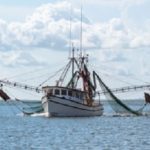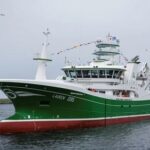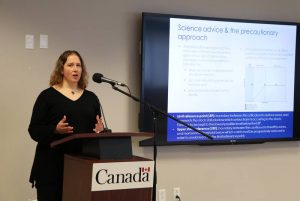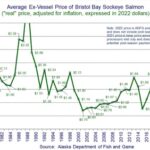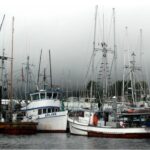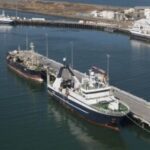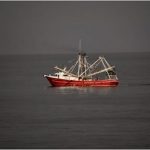Daily Archives: March 23, 2017
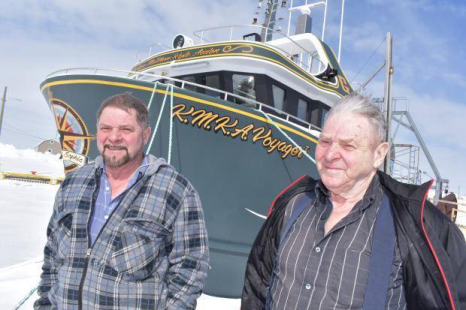
The cod are coming back to Newfoundland — and they’re eating the shrimp that had taken over
Theodore Genge has a big beautiful new dragger that’ll be ready to head for “the Labrador” as soon as the sea ice loosens its grip on Anchor Point. When the 63-year-old Newfoundland fisherman began building the $2.2 million trawler two years ago he had 750,000 pounds worth of shrimp quota to catch. But plummeting shrimp numbers in the cold water off Labrador have led Fisheries and Oceans Canada to drastically carve into quotas for that coast. Genge expects that by April he’ll be left with a total of 300,000 lbs of quotas — 220,000 lbs in the Gulf of St. Lawrence, where there is still plenty of shrimp, and 80,000 lbs on the Labrador coast. “Right now, yes, it’s pretty stressful – I don’t know whether there’s any hope or no,” said Genge. (Big read!) continue reading the article here 16:25
Proposed regulations irk lobstermen
B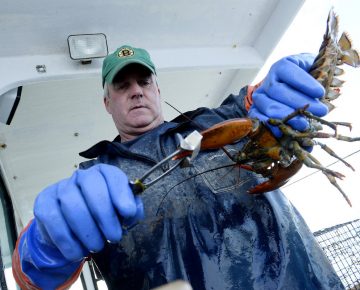 ay State lobstermen fear that a new proposal — meant to save lobsters in warming southern New England waters — could hurt business by barring them from harvesting in prime summer months and putting tighter restrictions on the size of their catch. The Atlantic States Marine Fisheries Commission will present a plan in New Bedford tonight on ways to maintain or increase the number of lobsters in waters from southern Massachusetts to Delaware. “Over the last 15 years we’ve seen a decline in lobster abundance, and we think that’s by and large a response to warming ocean temperatures,” said Dan McKiernan, deputy director of the Massachusetts Division of Marine Fisheries. “That’s the challenge that we have — it’s trying to preserve lobster but doing it in a way that the industry can survive,” he added. Yet Massachusetts lobstermen argue that their pots are full and don’t see what the fuss is all about. video, read the story here 15:58
ay State lobstermen fear that a new proposal — meant to save lobsters in warming southern New England waters — could hurt business by barring them from harvesting in prime summer months and putting tighter restrictions on the size of their catch. The Atlantic States Marine Fisheries Commission will present a plan in New Bedford tonight on ways to maintain or increase the number of lobsters in waters from southern Massachusetts to Delaware. “Over the last 15 years we’ve seen a decline in lobster abundance, and we think that’s by and large a response to warming ocean temperatures,” said Dan McKiernan, deputy director of the Massachusetts Division of Marine Fisheries. “That’s the challenge that we have — it’s trying to preserve lobster but doing it in a way that the industry can survive,” he added. Yet Massachusetts lobstermen argue that their pots are full and don’t see what the fuss is all about. video, read the story here 15:58
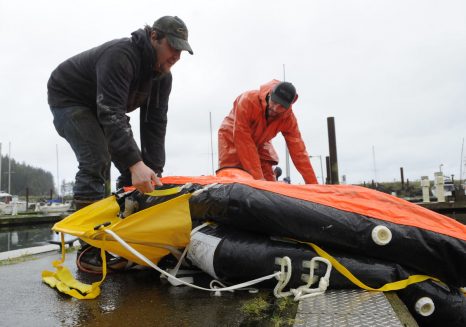
Commercial fishermen undergo safety training in Charleston
The water was somewhere between 45 and 50 degrees and here I was about to jump in. Though I had donned the bulky orange survival suit, which would protect me from the quick onset of hypothermia, I had been told that hypothermia could still set in after days spent in the water. Of course, I would only be bobbing like a cork in the Charleston harbor for maybe 15 minutes, but the idea was still daunting. This was the end of a two-day safety training for commercial fishermen. It was to teach us what to do when a boat starts to sink. Though I was only tagging along for the end, it is a requirement for commercial fishermen to earn the certification. Every vessel must have at least one certified safety instructor, and to get certified these fishermen undergo two days of training from the U.S. Coast Guard. A group of 10 men joined in on that training this week under the direction of Commercial Fishing Safety Examiner and Coast Guard civilian Steve Kee, who also threw me in the water to understand a small piece of what it would be like in a fast-moving crisis. continue reading the story here 14:58
Shark Fins: Waste or Resource?
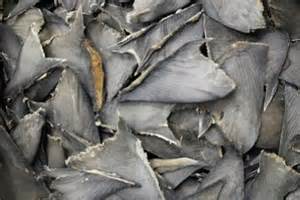 An article in the St. Augustine Record caught my eye on social media this week. Viewed as a winter resident of Florida the headline was quite shocking, especially since I have many times seen sharks hauled ashore by surf-fishing tourists and subsequently abused. By abuse I mean leaving the animal in the sand while relatives run to find cameras to record the grisly images for bragging rights, not at all concerned about the suffering of the shark and/or the fact that it needs water to be able to “breathe.” The header in the Record was even more worrisome: “Sale and trade of shark fins to continue in Florida, despite threat to ecosystem, tourism.” The Boston Globe-credited-photo leading the post was worse. continue reading the story here 14:17
An article in the St. Augustine Record caught my eye on social media this week. Viewed as a winter resident of Florida the headline was quite shocking, especially since I have many times seen sharks hauled ashore by surf-fishing tourists and subsequently abused. By abuse I mean leaving the animal in the sand while relatives run to find cameras to record the grisly images for bragging rights, not at all concerned about the suffering of the shark and/or the fact that it needs water to be able to “breathe.” The header in the Record was even more worrisome: “Sale and trade of shark fins to continue in Florida, despite threat to ecosystem, tourism.” The Boston Globe-credited-photo leading the post was worse. continue reading the story here 14:17

T-shirts designed to help protect an endangered species: the fisherman.
Jason Davis, founder of Loggerhead Printing located in Sneads Ferry, is making waves with his new T-shirt that reads, Protect The Fisherman. Protect An Endangered Species. It’s his creative response to the new proposed regulations passed down by the N.C. Marine Fisheries Commission, which has the potential to limit when and where fisherman can collect their daily bread. Though these regulations are not formally enforced yet, their potential impact has many commercial fishermen and the fish markets that rely on them fearful. Across the board, popular fish markets from Sneads Ferry to Jacksonville and even Emerald Isle refuse to comment on this touchy subject. It’s an issue that could impact the way they and their families in our coastal community live their life. A portion of the sale proceeds will go toward the North Carolina Fisheries Association. read the story here 11:53
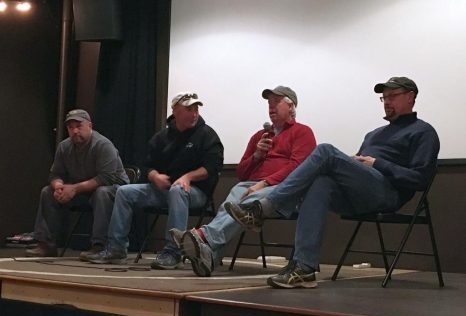
Maine fishermen see warning signs in lobster surge
After Maine’s lobster industry set sales records for a second straight year, area fishermen are enjoying the boom while the water is warm. Literally. Rising sea temperatures are benefiting Maine’s iconic crustacean, leading to an increase in population while other marine species, such as soft-shell crabs, have suffered a decline, according to fishermen who spoke at a March 16 Maine Coast Fishermen’s Association panel. But the factors for today’s success may portend tomorrow’s economic and cultural disaster, according to some area fishermen. “We’re going to start going down when it gets warmer,” Maine Lobstermen’s Association President Dave Cousens told the audience at the Frontier Cafe. Cousens was joined by MCFA President Gerry Cushing, of Port Clyde; Chebeague Island fisherman Alex Todd, and lobsterman Steve Train of Long Island. continue reading the story here 11:07
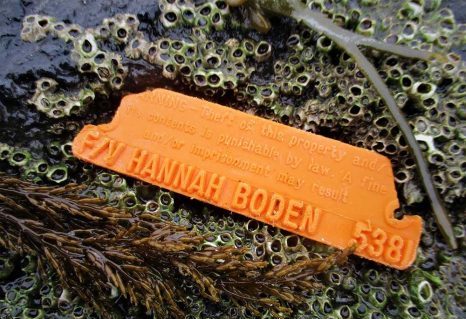
Tag from famous fishing boat washes up in Fanore
A tag, believed to be from one of the Hannah Boden’s lobster pots, has travelled up to 5,000 kilometres across the North Atlantic to where it washed up on Fanore Beach on March 14th. The discovery was made by avid beach comber Liam McNamara who also made contact with the crew of the Hannah Boden to check its authenticity. Liam said: “The is a great beachcombers find and a very cool story indeed. I was walking on Fanore beach last Tuesday and saw it wrapped in seaweed. I know what it was straight away has I had seen the film. It is in fact a tag from the now very famous New England boat, the Hannah Boden, which survived “The Perfect Storm” of 1991 while her sister boat the Andrea Gail which was lost at sea with all hands during the same storm,” he said. read the story here 10:28
Researchers: Columbia spring chinook forecast might be too high
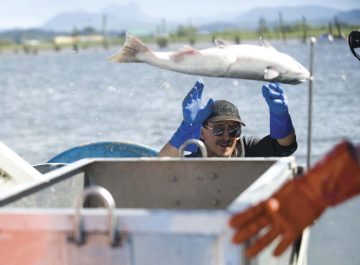 Fisheries managers have been predicting a slightly below-average run of spring chinook salmon on the Columbia River this year, but a newly published suggests that it may be worse. According to researchers from Oregon State University and the National Oceanic and Atmospheric Administration, ocean conditions were historically bad in the spring of 2015, when migrating yearling fish that will comprise the bulk of this spring’s adult chinook salmon run first went out to sea. In fact, Pacific Decadal Oscillation values — which reflect warm and cold sea surface temperatures — suggest it was one of the warmest nearshore oceans encountered by migrating chinook salmon dating back to at least 1900. The lack of food for the salmon in 2015 may have resulted in significant mortality that will show in this year’s run of Columbia River springers. One way or another, it will provide new information on fish survival and whether juvenile salmon prey data can help resource managers predict future returns. continue reading the story here 10:11
Fisheries managers have been predicting a slightly below-average run of spring chinook salmon on the Columbia River this year, but a newly published suggests that it may be worse. According to researchers from Oregon State University and the National Oceanic and Atmospheric Administration, ocean conditions were historically bad in the spring of 2015, when migrating yearling fish that will comprise the bulk of this spring’s adult chinook salmon run first went out to sea. In fact, Pacific Decadal Oscillation values — which reflect warm and cold sea surface temperatures — suggest it was one of the warmest nearshore oceans encountered by migrating chinook salmon dating back to at least 1900. The lack of food for the salmon in 2015 may have resulted in significant mortality that will show in this year’s run of Columbia River springers. One way or another, it will provide new information on fish survival and whether juvenile salmon prey data can help resource managers predict future returns. continue reading the story here 10:11
State unreceptive to squid-fishing petition
 David Pierce, director of the state’s Division of Marine Fisheries, started yesterday’s public hearing on whether to bar trawlers from fishing for squid within three miles of Nantucket by listing the reasons he does not support a local petition to keep them away from the island from May 1 to Oct. 31. By the end of the four-hour meeting, attended by an overflow crowd at the Public Safety Facility, Nantucket charter captain and former commercial fisherman Pete Kaizer hoped Pierce had changed his mind on at least one thing: that trawlers disrupt what are called squid mops in a way that kills squid eggs and affects spawning. subscription site, more info to follow as it becomes available. 09:46
David Pierce, director of the state’s Division of Marine Fisheries, started yesterday’s public hearing on whether to bar trawlers from fishing for squid within three miles of Nantucket by listing the reasons he does not support a local petition to keep them away from the island from May 1 to Oct. 31. By the end of the four-hour meeting, attended by an overflow crowd at the Public Safety Facility, Nantucket charter captain and former commercial fisherman Pete Kaizer hoped Pierce had changed his mind on at least one thing: that trawlers disrupt what are called squid mops in a way that kills squid eggs and affects spawning. subscription site, more info to follow as it becomes available. 09:46
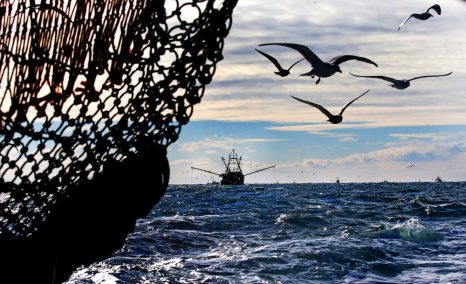
Federal regulators put an end to turbulent season in northern Gulf of Maine scallop fishery
Federal authorities are closing the scallop fishery in the northern Gulf of Maine at 12:01 a.m. Thursday after a contentious three-week season that pitted the interests of part-time, small-boat fishermen from Maine against large, full-time scallop operators. Fisheries regulators announced the closure Wednesday after small-boat fishermen – many of them Maine lobstermen operating 40- to 45-foot boats – met their annual quota of 70,000 pounds. The developments do not apply to the scallop fishery in state waters, which extend to 3 miles from shore. This year’s federal harvest has been contentious because the large, full-time boats are believed to have caught more than 1 million pounds of scallops in the northern Gulf of Maine scallop fishing area, but owing to a quirk in federal rules the fishery could not be closed until the small vessels caught 70,000 pounds. This month’s storms and unseasonable weather had kept the small boats in port, delaying their ability to meet their annual quota and close the area to the larger vessels, who were permitted to continue harvesting large quantities of scallops under federal rules. continue reading the story here 07:57

































